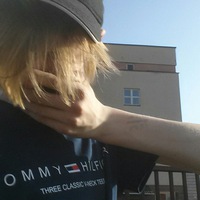
В чем было предназначение Рудина?
 0
0
 0
0
Ответы на вопрос
 Внимание! Ответы на вопросы дают живые люди. Они могут содержать ошибочную информацию, заблуждения, а также ответы могут быть сгенерированы нейросетями. Будьте внимательны. Если вы уверены, что ответ неверный, нажмите кнопку "Пожаловаться" под ответом.
Внимание! Ответы на вопросы дают живые люди. Они могут содержать ошибочную информацию, заблуждения, а также ответы могут быть сгенерированы нейросетями. Будьте внимательны. Если вы уверены, что ответ неверный, нажмите кнопку "Пожаловаться" под ответом.

Впервые знакомя читателя с героем, Тургенев представляет его как “опытного говоруна”, обладающего “музыкой красноречия”. В своих речах Рудин клеймит позором лень, говорит о высоком предназначении человека, мечтает о том, чтобы Россия была просвещенной страной. Тургенев отмечает, что его герой “не искал слов, а слова сами послушно приходили к нему на уста, каждое слово лилось прямо из души, пылало жаром убеждения”.
На большинство молодых людей речи Рудина производили огромное впечатление: они буквально заражали их, вызывая стремление воплощать рудинские идеалы в жизнь. Но были и такие, кто относился к его словам равнодушно и даже с опасением. Товарищ Рудина Лежнев думал о том, что “слишком красиво говорит Рудин, слишком обильны его речи”, но в них мало полезного. Сам Лежнев, лучше других знавший Рудина, давно определил для себя цену слова последнего. В разговоре с Александрой Павловной Лежнев раскрывает всю правду о Рудине, выявляя роковой разлад между обилием мыслей и отсутствием действий.
 0
0
 0
0

The Purpose of "Rudin"
"Rudin" is a novel written by Ivan Turgenev and published in 1856. The novel explores the life and character of the protagonist, Dmitry Rudin, and delves into themes of love, idealism, and the clash between different social classes in 19th-century Russia. The purpose of "Rudin" is to provide a psychological portrait of the main character and to examine the conflicts and contradictions within Russian society during that time period.
Psychological Portrait of Dmitry Rudin
Dmitry Rudin, the central character of the novel, is depicted as an intelligent and idealistic young man who is passionate about social reform and the pursuit of truth. He is well-educated and has a deep understanding of literature, philosophy, and politics. However, despite his intellectual abilities, Rudin is portrayed as a complex and flawed character.
Rudin's Idealism: One of the main purposes of the novel is to explore Rudin's idealism and his struggle to reconcile his lofty ideals with the realities of Russian society. He believes in the power of love and the ability of individuals to bring about positive change in society. However, Rudin's idealism often clashes with the harsh realities of the world, leading to his disillusionment and inner conflicts.
Rudin's Relationships: Another important aspect of the novel is the exploration of Rudin's relationships with other characters. Through his interactions with different individuals, such as Natalya, Lezhnev, and Pandalevsky, the novel examines Rudin's inability to form deep and lasting connections with others. His idealism and intellectual arrogance often hinder his ability to truly understand and empathize with those around him.
Themes Explored in "Rudin"
Love and Idealism: "Rudin" explores the theme of love and idealism through the character of Dmitry Rudin. The novel raises questions about the nature of love, the possibility of finding true happiness, and the role of idealism in shaping one's actions and beliefs.
Social Class and Inequality: Turgenev's novel also delves into the theme of social class and inequality in 19th-century Russia. Through the interactions between Rudin and characters from different social backgrounds, the novel highlights the stark divisions and conflicts that existed within Russian society at the time.
Intellectualism and Arrogance: The novel also examines the dangers of intellectualism and arrogance. Rudin's intellectual pursuits and his belief in his own superiority often lead to
 0
0
 0
0
Топ вопросов за вчера в категории Литература
Последние заданные вопросы в категории Литература
-
Математика
-
Литература
-
Алгебра
-
Русский язык
-
Геометрия
-
Английский язык
-
Химия
-
Физика
-
Биология
-
Другие предметы
-
История
-
Обществознание
-
Окружающий мир
-
География
-
Українська мова
-
Информатика
-
Українська література
-
Қазақ тiлi
-
Экономика
-
Музыка
-
Право
-
Беларуская мова
-
Французский язык
-
Немецкий язык
-
МХК
-
ОБЖ
-
Психология
-
Физкультура и спорт
-
Астрономия
-
Кыргыз тили
-
Оʻzbek tili




















